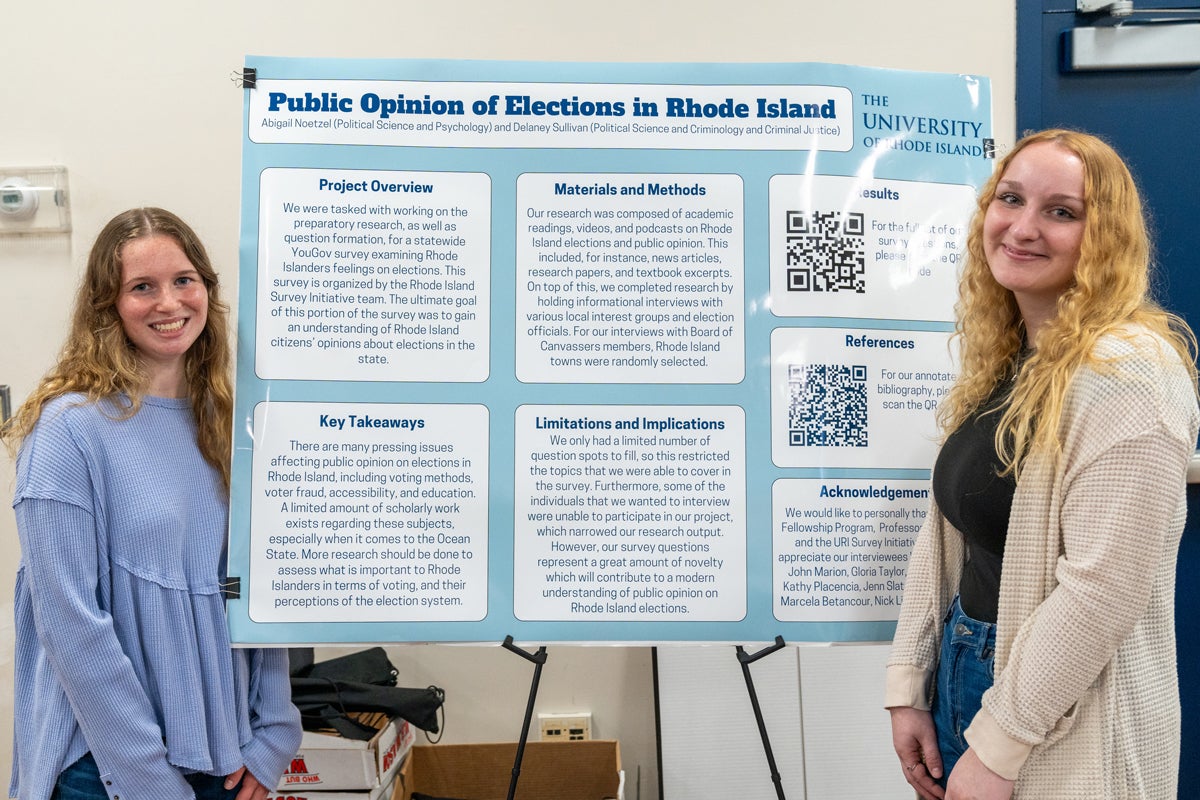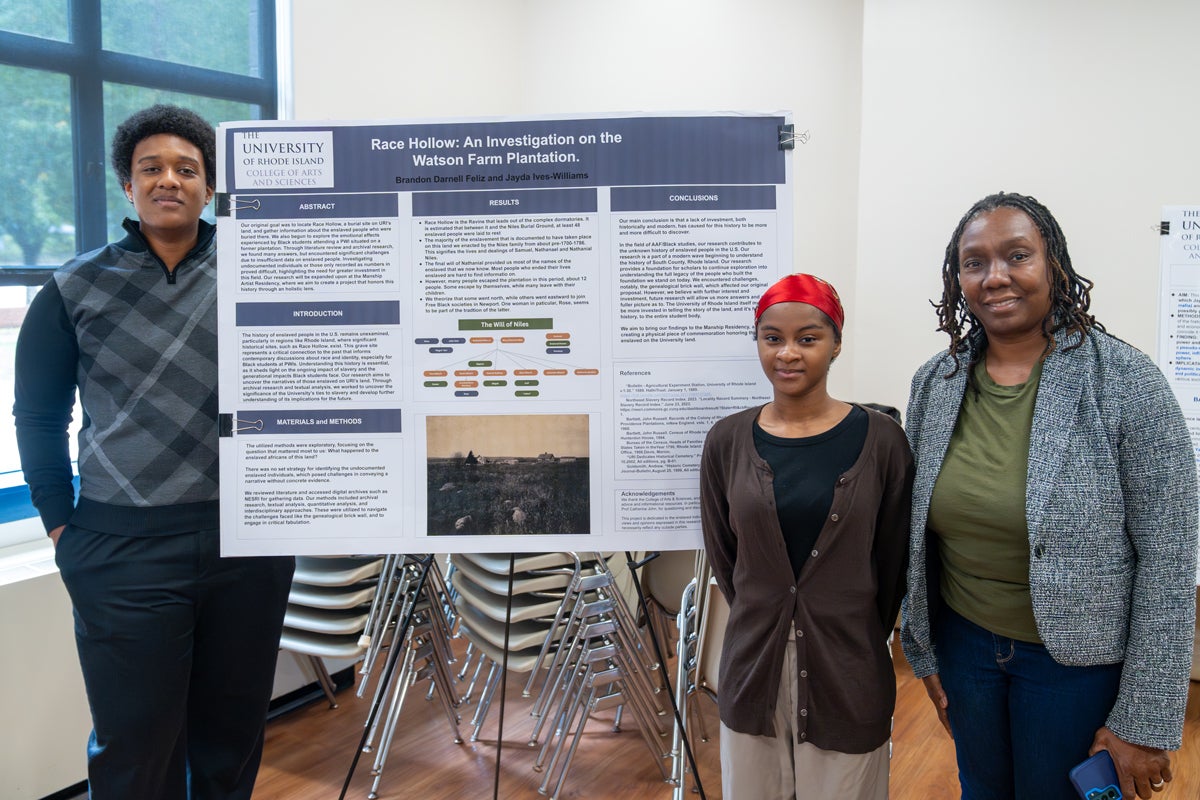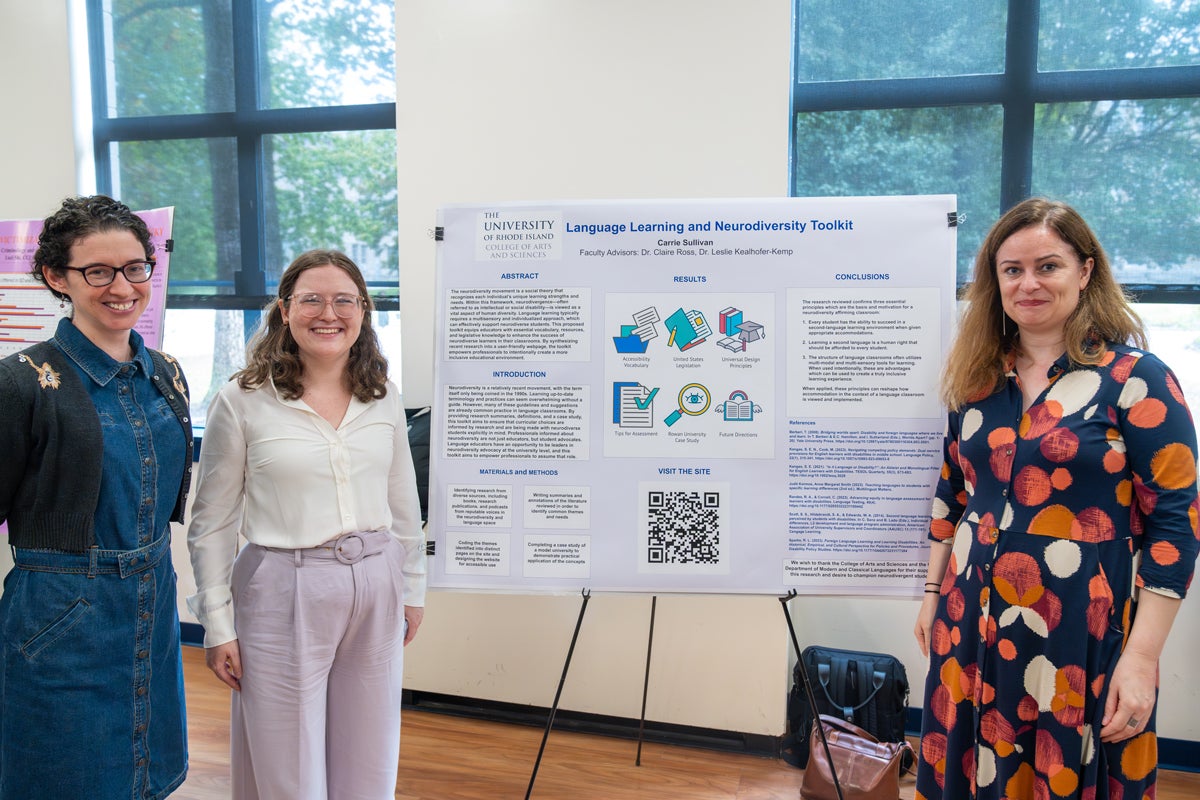KINGSTON, R.I. — Oct. 1, 2024 — With the 2024 presidential election right around the corner, it can be difficult to think about much else with so much at stake. What better way to get through a tumultuous and unprecedented time than to dive head-first and learn where local constituents stand on relevant issues pertaining to elections at large? Through The College of Arts and Sciences Fellows Program, Abigail Noetzel ’26, did just that.
Noetzel, criminology and criminal justice, and psychology, received a 10-week Arts and Sciences student fellowship for the summer of 2024, which she used to participate in preparatory research and question formation for a statewide YouGov survey examining Rhode Islanders’ opinions on elections.
 “I was able to connect with several influential individuals in the Rhode Island political scene, and learn about all of the extensive and intricate work that goes into making an effective survey,” she said.
“I was able to connect with several influential individuals in the Rhode Island political scene, and learn about all of the extensive and intricate work that goes into making an effective survey,” she said.
Each Arts and Sciences student fellow collaborates with a faculty mentor during their fellowship. Noetzel’s mentor, Dr. Emily Lynch, is a core member and author of the Rhode Island Survey Initiative at URI. According to Noetzel, as a mentor, Lynch taught her practical skills like survey creation, offered knowledge on topics including Rhode Island elections, and gave her the confidence to pursue this ambitious project.
“Going forward, I am confident that I can excel in my courses at URI given what I have learned through this fellowship, especially in terms of research. I have developed countless transferable skills, and I am super grateful for that,” said Abigail.
On September 26th, 15 student fellows presented in the Memorial Union, where faculty, staff, and students were invited to review their research and creative projects. The room was buzzing with new ideas and the unique energy of discovery. Students from a variety of backgrounds and educational goals stood by their visual presentations, ready to answer questions about their research or creative project.
“Race Hollow: An Investigation to the Watson Farm Plantation” by Brandon Darnell Feliz ’25 and Jayda Ives-Williams ’25 took a closer look at the history of URI’s campus. After a visit to Smith’s Castle (close to URI’s Kingston campus, built in 1678 and former home to the Smith family, their heirs – the Updikes, and dozens of enslaved people), they learned about the site on which Smith’s Castle sits, Cocumscussoc, is part of the Rhode Island Slave History Medallion program, which promotes public awareness about slavery at historic sites across Rhode Island.
 After the trip, the team became motivated to locate Race Hollow, a burial site on URI’s land, and gather information about the enslaved people who were buried there. The results revealed where the ravine that leads out of the complex dormitories on the URI Kingston campus, an estimated 48 enslaved people were laid to rest in unmarked graves. This presentation also delved into the emotional effects experienced by Black students attending a PWI situated on a former plantation.
After the trip, the team became motivated to locate Race Hollow, a burial site on URI’s land, and gather information about the enslaved people who were buried there. The results revealed where the ravine that leads out of the complex dormitories on the URI Kingston campus, an estimated 48 enslaved people were laid to rest in unmarked graves. This presentation also delved into the emotional effects experienced by Black students attending a PWI situated on a former plantation.
“I just couldn’t believe the disparity and contradiction of regular 2024 college life coexisting with a slave burial ground. It’s a heavy weight for students who know about this to carry when many of their peers have no idea. We wanted to bridge that gap,” said Brandon.
In the process of doing archival research, the team faced significant challenges due to insufficient data on enslaved people. Investigating undocumented individuals highlighted the need for greater investment in this field for Felix and Ives-Williams. Their research will be expanded upon at the Manship Artist Residency, where they aim to create a project that honors this history through a holistic lens.
Brandon is interested in continuing his studies in graduate school, and Jayda has her eyes set on law school after a few years post-grad. For both students, the fellowship imparted a newfound passion for research and the drive to aim high. Their ultimate goal is to have a memorial built at Race Hollow as an effort to educate new and incumbent students, as well as foster constructive conversations around the subject matter.
Carrie Sullivan ’25, a music therapy and Spanish double-major, presented her project “Language Learning and Neurodiversity Toolkit” with faculty mentors, Dr. Leslie Kealhofer-Kemp and professor Claire Ross. Carrie passionately bridges the gap between both disciplines and provides practical and thoughtful arguments as to why learning a new language should be accessible to all students.
Through her research, Carrie learned that oftentimes students with a learning disability often do not pursue a second-language course. However, this approach in turn hurts these students as opposed to helping them, according to her.
 “Every student has the ability to succeed in a second-language learning environment when given appropriate accommodations. Language and disabilities are connected; they are both multimodal,” said Carrie.
“Every student has the ability to succeed in a second-language learning environment when given appropriate accommodations. Language and disabilities are connected; they are both multimodal,” said Carrie.
The structure of language classrooms often utilizes multi-modal and multi-sensory tools for learning. When used intentionally, these are advantages which can be used to create a truly inclusive learning experience. As part of her fellowship, she built a website that provides educators with a toolkit on how to provide second-language learning to neurodivergent students.
Among the many visitors, Jeannette E. Riley, Dean of the College of Arts and Sciences, made an appearance to congratulate the students for their hard work. She also presented each student with a College of Arts and Sciences coin as a symbol of their outstanding achievements through the fellowship program.
“The A&S Fellows Program enables students to pursue a project in depth, develop their critical thinking skills, and work closely with a faculty mentor. I am beyond proud of the student fellows and the impressive work they accomplished this past summer. I am also grateful for the A&S alumni who help to support this program with gifts to the A&S Rhody Now fund,” said Dean Riley.
Off the tails of the university being named the number one public university in New England, the fellowship program is one piece among many that contribute to the big thinkers URI is proud to educate.
Learn more about eligibility and student fellow profiles, please visit https://web.uri.edu/artsci/fellows-program/.
